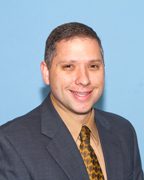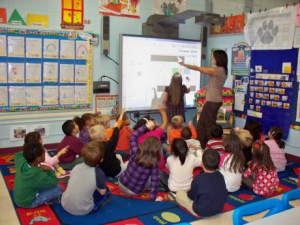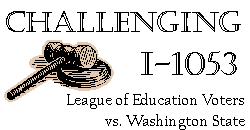We Need Common Sense Discipline
 This blog post was written by LEV Organizer Andaiye Qaasim
This blog post was written by LEV Organizer Andaiye Qaasim
Every year, tens of thousands of students across Washington state are suspended and expelled. We can only speculate how these numbers translate into loss of classroom time, failed courses, and decreased graduation rates. Let alone the damage done to a student’s psyche, self-esteem or confidence. Thankfully, this situation is about to change.
Yesterday, the Senate Early Learning and K-12 Education Committee reviewed four different bills on discipline. This long awaited movement in the Washington state legislature is the result of the unceasing advocacy from various community groups, parents, non-profit organizations, and policy makers. The list of supporters for this cause included the Kent Black Action Commission, WA Appleseed, TeamChild, the Maxine Mimms Academy, and the League of Education Voters just to name a few.
As a community organizer I have heard several community members express their frustration with the way discipline is carried out in schools. When we analyze disproportionality in school discipline we begin to realize that it’s not just about ineffective policies, bogged down bureaucrats, and “unintentional” consequences. Many of us ask about equity, cultural competence, inclusion, student dignity, and the constitutional right to an education. These conversations are forcing people in Washington state to finally explore the pernicious inequity in our schools.
As we delve deeper into this issue we also begin to explore some key questions such as “How is it possible for education to level the playing field, when the field in education has yet to be level?” “How can we possibly argue that public education is accessible to all, but still engage in discriminatory practices?” “What does equity in education really mean?”
It was evident in the spirit, hearts and stories all who testified yesterday that transforming school discipline and reclaiming Washington state students is going to take more than well thought out policies. The policy will provide the infrastructure, but the people must provide the implementation. An equitable implementation of school discipline will require a cultural shift—one that is intentional and uncompromising.
We are hopefully beginning to see this cultural shift in the way we go about the practice of public education and create a system that does not continually exclude students, but one that unconditionally accepts and incorporates all students into a learning community. I sincerely hope that we are finally able to have these conversations without being afraid of the words ‘racism,’ ‘inequity,’ ‘low-income,’ and ‘cultural competence.’
Yesterday was a monumental day for Washington state, and we will all hold our breath while the Senate decides the fate of the four discipline bills that were heard. We thank our legislators for the taking up this issue. We hope that they may be filled with the same righteous indignation of Martin Luther King, this week and the next, as they deliberate over their decision, and thus over the lives of tens of thousands of children in Washington. We look forward to change and band together in solidarity with communities across Washington state, ready to take up the fight.
Join us in the movement.
 Last week, LEV’s CEO Chris Korsmo gave a “TED Talk” at the
Last week, LEV’s CEO Chris Korsmo gave a “TED Talk” at the  In a special ceremony at the EMP, State Superintendent Randy Dorn
In a special ceremony at the EMP, State Superintendent Randy Dorn  It’s August 2nd which means we are two days in to Connected Educator Month. Created by the Department of Education, Connected Educator Month celebrates “educators at all levels, from all disciplines, moving towards a fully connected and collaborative profession…”. The New York Times is honoring the occasion by asking 33 educators the following questions:
It’s August 2nd which means we are two days in to Connected Educator Month. Created by the Department of Education, Connected Educator Month celebrates “educators at all levels, from all disciplines, moving towards a fully connected and collaborative profession…”. The New York Times is honoring the occasion by asking 33 educators the following questions: Brenda and Dawit are joining LEV from the
Brenda and Dawit are joining LEV from the 

 Budding Washington artists and visionaries have the opportunity to showcase their talents at an exhibit to celebrating the 50th anniversary of the 1962 Seattle World’s Fair.
Budding Washington artists and visionaries have the opportunity to showcase their talents at an exhibit to celebrating the 50th anniversary of the 1962 Seattle World’s Fair.